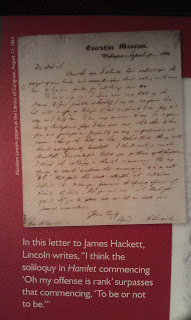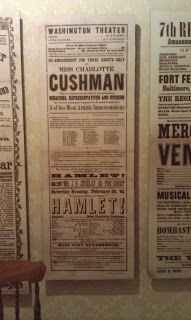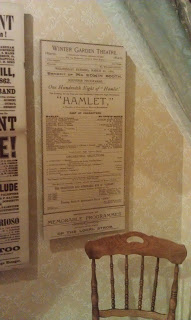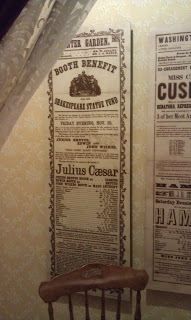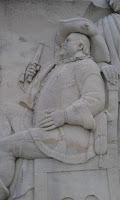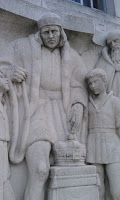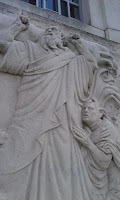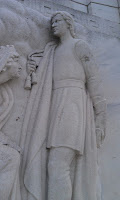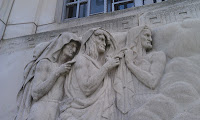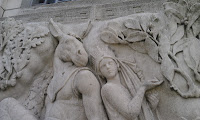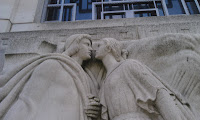|
To draw no envy (Shakespeare) on thy name,
Am I thus ample to thy Booke, and Fame;
While I confesse thy writings to be such,
As neither Man, nor Muse, can praise too much.
‘Tis true, and all men’s suffrage. But these wayes
Were not the paths I meant unto thy praise;
For seeliest Ignorance on these may light,
Which, when it sounds at best, but eccho’s right;
Or blinde Affection, which doth ne’re advance
The truth, but gropes, and urgeth all by chance;
Or crafty Malice, might pretend this praise,
And thine to ruine, where it seem’d to raise.
These are, as some infamous Baud, or Whore,
Should praise a Matron. What could hurt her more?
But thou art proofe against them, and indeed
Above th’ ill fortune of them, or the need.
I, therefore will begin. Soule of the Age !
The applause ! delight ! the wonder of our Stage !
My Shakespeare, rise; I will not lodge thee by
Chaucer, or Spenser, or bid Beaumont lye
A little further, to make thee a roome :
Thou art a Moniment, without a tombe,
And art alive still, while thy Booke doth live,
And we have wits to read, and praise to give.
That I not mixe thee so, my braine excuses ;
I meane with great, but disproportion’d Muses :
For, if I thought my judgement were of yeeres,
I should commit thee surely with thy peeres,
And tell, how farre thou dist our Lily out-shine,
Or sporting Kid or Marlowes mighty line.
And though thou hadst small Latine, and lesse Greeke,
From thence to honour thee, I would not seeke
For names; but call forth thund’ring Æschilus,
Euripides, and Sophocles to us,
Paccuvius, Accius, him of Cordova dead,
To life againe, to heare thy Buskin tread,
And shake a stage : Or, when thy sockes were on,
Leave thee alone, for the comparison
Of all, that insolent Greece, or haughtie Rome
Sent forth, or since did from their ashes come.
Triumph, my Britaine, thou hast one to showe,
To whom all scenes of Europe homage owe.
He was not of an age, but for all time !
And all the Muses still were in their prime,
When like Apollo he came forth to warme
Our eares, or like a Mercury to charme !
Nature her selfe was proud of his designes,
And joy’d to weare the dressing of his lines !
Which were so richly spun, and woven so fit,
As, since, she will vouchsafe no other Wit.
The merry Greeke, tart Aristophanes,
Neat Terence, witty Plautus, now not please;
But antiquated, and deserted lye
As they were not of Natures family.
Yet must I not give Nature all: Thy Art,
My gentle Shakespeare, must enjoy a part;
For though the Poets matter, Nature be,
His Art doth give the fashion. And, that he,
Who casts to write a living line, must sweat,
(Such as thine are) and strike the second heat
Upon the Muses anvile : turne the same,
(And himselfe with it) that he thinkes to frame;
Or for the lawrell, he may gaine a scorne,
For a good Poet’s made, as well as borne.
And such wert thou. Looke how the fathers face
Lives in his issue, even so, the race
Of Shakespeares minde, and manners brightly shines
In his well toned, and true-filed lines :
In each of which, he seemes to shake a Lance,
As brandish’t at the eyes of Ignorance.
Sweet swan of Avon! what a fight it were
To see thee in our waters yet appeare,
And make those flights upon the bankes of Thames,
That so did take Eliza, and our James !
But stay, I see thee in the Hemisphere
Advanc’d, and made a Constellation there !
Shine forth, thou Starre of Poets, and with rage,
Or influence, chide, or cheere the drooping Stage;
Which, since thy flight fro’ hence, hath mourn’d like night,
And despaires day, but for thy Volumes light. |

